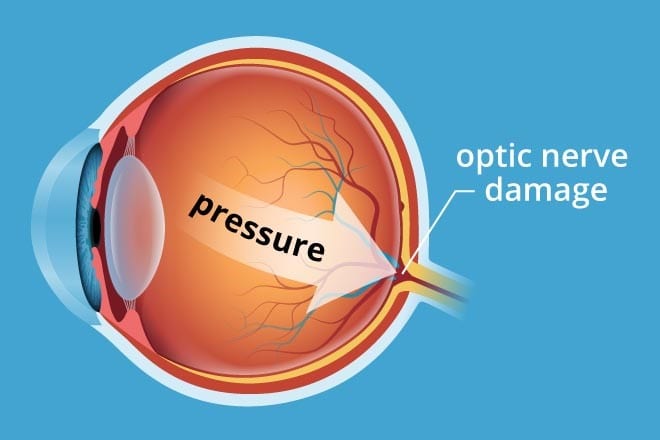
A Guide to Glaucoma
Glaucoma is the leading cause of blindness for people 60 years and older, but with early diagnosis and treatment, it can be preventable. At Gonzaba Medical Group, we specialize in senior care and believe it is important to bring awareness of conditions such as glaucoma. Here are the different types of glaucoma and procedures to help treat it.
Types of Glaucoma:
- Primary Open-Angle Glaucoma: this is the most common type of glaucoma and can happen gradually. The eye will not drain the fluid properly, resulting in pressure buildup and damage to the optic nerve. It is painless, and at first, causes no changes to vision. People whose optic nerves are sensitive to pressure are usually more at risk of getting this type of glaucoma.
- Angle-Closure Glaucoma: occurs when the eye’s iris, the colored part of your eye, is very close to the drainage angle. The iris can end up blocking the angle, leading to eye pressure. When the drainage angle gets completely blocked, and pressure builds up quickly, this is called an acute attack. When this happens, one must go to a doctor immediately as it can soon cause blindness
Signs of an acute attack include:
- Vision suddenly blurry.
- Severe eye pain.
- Nausea.
- Vomiting.
- Headaches.
- Seeing rainbow-colored rings or halos around lights.
Diagnosis:
The only way to correctly diagnosis glaucoma is to have a thorough eye exam done by a professional ophthalmologist. During the eye exam, the ophthalmologist will:
- Measure your eye pressure.
- Inspect your eye’s drainage angle.
- Take a picture or computer measurement of your optic nerve.
- Measure the thickness of your cornea.
- Examine your optic nerve for any damage.
- Test your peripheral (side) vision.
Treatment:
Although damage from glaucoma is permanent, medicine and surgery can stop further damage from occurring. Your ophthalmologist may use one or more of the following treatments:
Medication: Eyedrop medicine can help control glaucoma by easing eye pressure. Eye drops can be used every day to reduce the pressure and amount of aqueous fluid. Although the medications can help maintain your vision, there are potential side effects when taking them including:
- Stinging or itching sensation.
- Red eyes or red skin around the eyes.
- A change in your pulse, heartbeat, energy level, breathing, eye color, the skin around your eyes, or eyelid appearance.
- Dry mouth.
- Blurred vision.
- Eyelash growth.
Laser Surgery: There are two types of laser surgery that can treat glaucoma:
- Trabeculoplasty: a treatment using a laser to improve the drainage angle. Fluid will flow out correctly, and eye pressure reduces. This surgery is for people who have primary open-angle glaucoma.
- Iridotomy: a treatment using a laser to create a tiny hole in the iris that helps fluid flow to the drainage angle. This surgery is for people who have angle-closure glaucoma.
Operating room surgery: Some glaucoma surgeries take place in an operating room. It will create a new drainage channel for the fluid to leave the eye.
- Trabeculectomy: the surgeon creates a small flap in the sclera, the white part of your eye, and creates a bubble, called a filtration bleb, in the conjunctivae, the thin membrane that covers the inside of your eyelids and white part of your eye. The bleb is hidden under the upper eyelid, and fluid will drain out of the eye through the flap and into the bled. Fluid is then absorbed by tissue around the eye, lowering pressure.
- Glaucoma drainage devices: the surgeon may implant a tiny drainage tube into your eye sending fluid to a collection area beneath the conjunctiva. Fluid is then absorbed by blood vessels.
Your Role: work together with your eye doctor to treat glaucoma correctly. Your doctor will prescribe the treatment, and it is then up to you to follow directions. Expect to visit your eye doctor frequently for check-ups.
At Gonzaba Medical Group in San Antonio, we are right here for you and your medical needs. Eye conditions can be severe and can cause significant impairment to your health. Come to us if you need help and we can refer you to a professional ophthalmologist. To make an appointment with us, please call 210-921-3800 and one of our rep will be happy to assist you.
